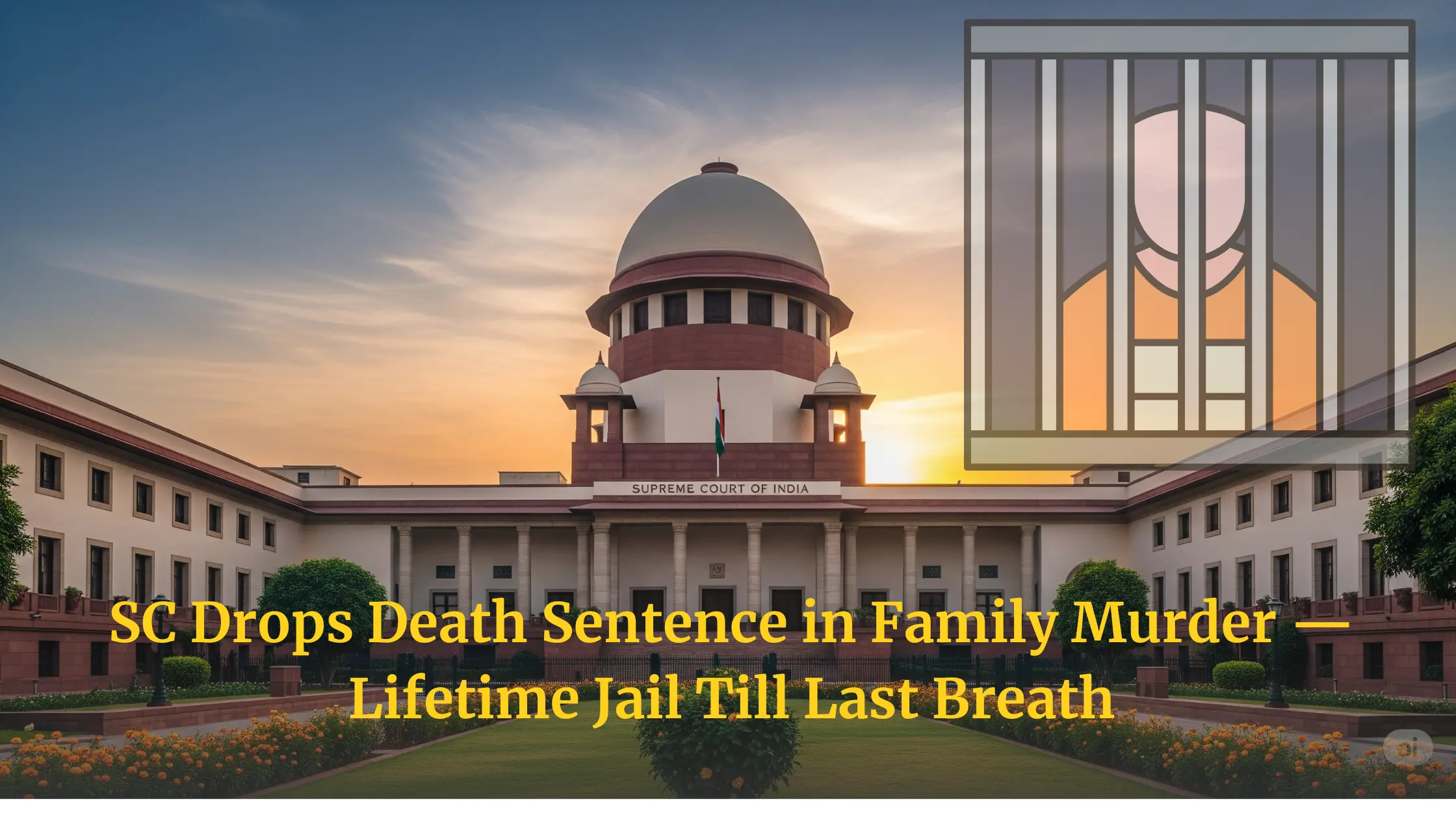Background
In 2017, the appellant brutally killed his wife, sister-in-law, and three children. His suspicion? He believed that his wife was unfaithful and the children were not his own. After committing the crime, he stepped out and openly declared that he had “done justice” by ending their lives, accusing them of immoral conduct.
When neighbours reached the spot, they found the bodies lying in a pool of blood. One child was alive but died at the hospital. The appellant later walked into the police station and confessed. Based on witness statements and his own confession, the trial began under Section 302 IPC.
The Trial Court described the act as “barbaric” and sentenced him to death. The High Court upheld the conviction and the sentence. The case then reached the Supreme Court.
What the Supreme Court Said
The three-judge bench of Justices Vikram Nath, Sanjay Karol, and Sandeep Mehta did not question the conviction — the evidence against the appellant was overwhelming. But when it came to the sentence, the Court took a deeper look.
The Bench noted that the High Court failed to properly consider the social and psychological background of the appellant, despite having access to detailed reports.
No Justification, No Provocation
The Court said there was no sudden provocation. The act was planned. He sent away the only child he believed to be his own before killing the rest of the family. That showed clear forethought, not a crime committed in the heat of the moment.
His doubts about paternity were never backed by proof. He acted based on belief, not evidence.
Not Insane, But Deeply Disturbed
Though he was uneducated, the Court found that the appellant was not irrational. He had a plan, which he executed carefully. Still, the Probation Report showed he had no criminal record, had been a well-behaved inmate, and even cleared a basic literacy program in jail.
He had also tried to take his own life twice — once after the murders and once after the death sentence — showing emotional instability.
Chance of Reform? Mixed Opinions
The reports gave mixed views on whether he could be reformed. But the law is clear — if two views are possible, the one favouring the accused should be taken.
Final Judgment
The Court upheld the conviction but modified the sentence.
Considering:
- His lack of prior criminal record
- Good conduct in prison
- Some signs of remorse and reform
The Supreme Court held that the death penalty wasn’t necessary in this case. Instead, he will serve life imprisonment without the possibility of remission — meaning he will stay in jail till his last breath.
Why This Case Matters
This case highlights a crucial principle — death penalty should be the last resort, only when there’s no scope for reform. Even in extreme crimes, courts are expected to look at the full picture — not just the crime, but the criminal too.
It’s also a reminder that sentencing isn’t mechanical. Background, behaviour, and possibility of change all play a role in how justice is served.






